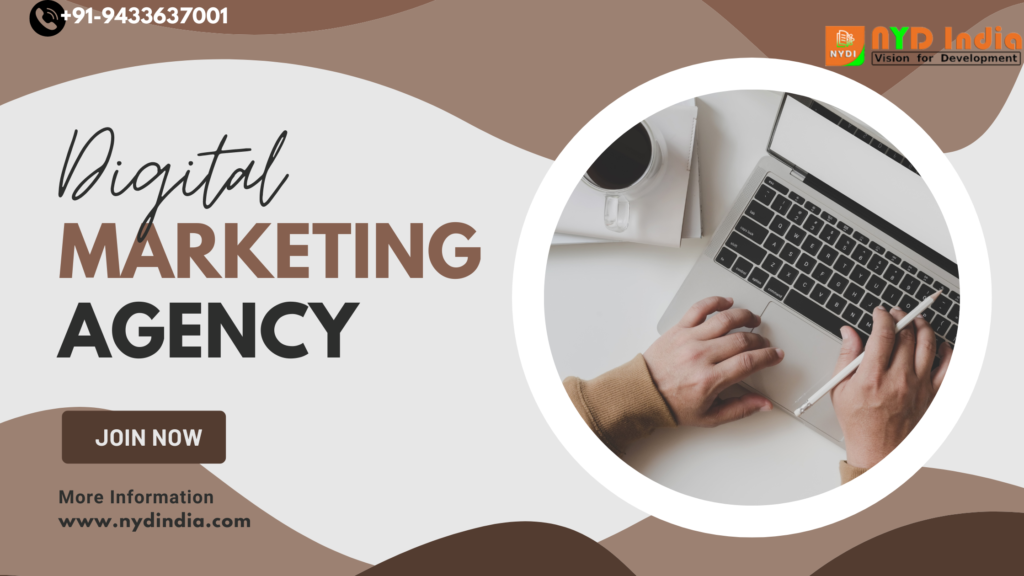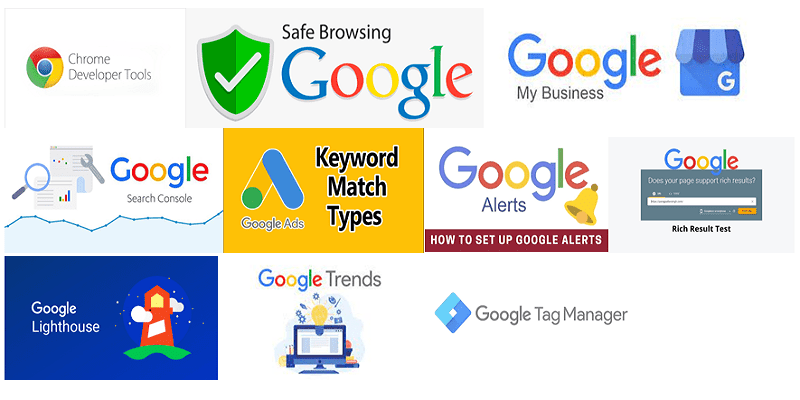
Social media has revolutionized the way we communicate and interact with each other. It has become an integral part of our daily lives, and businesses have taken notice. Social media marketing has become an important tool for businesses to reach and engage with their target audience. However, like any marketing strategy, social media marketing has its pros and cons. In this post, we will explore the advantages and disadvantages of social media marketing to help you decide if it’s the right approach for your business. We’ll discuss the benefits of increased brand awareness, customer engagement, and lead generation, as well as potential drawbacks such as negative feedback, time and resources needed to manage multiple social media platforms, and potential privacy concerns. By the end of this article, you’ll have a better understanding of the pros and cons of social media marketing, and be able to make an informed decision on whether it’s the right strategy for your business.
Introduction to social media marketing
Social media marketing is a form of digital marketing that involves promoting your brand or business on various social media platforms, such as Facebook, Twitter, Instagram, and LinkedIn. With the increasing popularity of social media platforms, social media marketing has become an essential component of any digital marketing strategy.
One of the most significant advantages of social media marketing is that it offers a cost-effective way to reach a large audience. Social media platforms allow businesses to create and share content, engage with their audience, and build brand awareness, all without breaking the bank.
Additionally, social media provides businesses with the opportunity to gather valuable insights into their target audience. By analyzing social media metrics, businesses can gain a better understanding of their customers’ needs and preferences, which can help them tailor their marketing strategies to better meet their customers’ needs.
However, social media marketing also comes with its fair share of challenges. One of the biggest concerns is the potential for negative feedback or backlash on social media platforms. Social media users are often quick to voice their opinions, and businesses must be prepared to handle negative comments or reviews.
Another challenge is that social media platforms are constantly evolving, with new features and algorithms being introduced regularly. Keeping up with these changes can be time-consuming, and businesses must be willing to adapt their strategies as needed to stay ahead of the curve.
Overall, social media marketing can be a powerful tool for businesses looking to reach a wider audience and build brand awareness. However, it’s important to weigh the pros and cons carefully to determine whether social media marketing is the right choice for your business.
Pros of social media marketing
Social media marketing has become an essential part of any business’s marketing strategy. Here are some of the key benefits of social media marketing that cannot be ignored:
- Increased brand awareness: Social media allows businesses to reach a wider audience and increase brand awareness. By engaging with customers and creating shareable content, businesses can expand their reach and attract new customers.
- Cost-effective: Compared to traditional marketing methods, social media marketing is relatively inexpensive. Most social media platforms offer free accounts, and paid advertising options are often more cost-effective than traditional advertising.
- Improved customer engagement: Social media provides businesses with a direct line of communication to their customers. By responding to customer inquiries and comments, businesses can improve customer satisfaction and build stronger relationships with their audience.
- Targeted advertising: Social media platforms allow businesses to target specific demographics and interests with their advertising. This ensures that your ads are seen by the right people, increasing the likelihood of conversions.
- Increased website traffic: Social media can drive traffic to your website through links shared in your posts and advertising. This can ultimately lead to more sales and revenue for your business.
In summary, social media marketing offers businesses numerous benefits that can help them grow and succeed in today’s digital age.
Cons of social media marketing
While social media marketing can be a highly effective way to engage with customers, there are also some cons to consider. One potential drawback is that social media platforms are constantly changing their algorithms, which can make it difficult to maintain a consistent presence and reach your target audience.
Another challenge is that social media can be time-consuming. It takes time and effort to create engaging content, respond to comments and messages, and monitor your social media accounts to ensure that your brand is being represented in the best possible way.
There is also the risk of negative feedback or a social media crisis, which can harm your brand’s reputation. With the ability for customers to share their experiences and opinions publicly, businesses need to be prepared to handle any negative feedback in a professional and timely manner.
Finally, social media marketing can be costly, especially if you choose to invest in paid advertising or work with influencers. It’s important to weigh the potential ROI against the cost of these strategies to ensure that you’re getting the most bang for your buck. While there are certainly cons to social media marketing, with careful planning and execution, the benefits can outweigh the drawbacks and lead to long-term success for your business.

How to determine if social media marketing is right for your business
Before diving headfirst into social media marketing, it’s important to determine if it is the right fit for your business. Not all businesses benefit from having a social media presence, and it’s important to consider the pros and cons before investing time and resources into it.
One of the first things to consider is your target audience. Are they active on social media? If not, then social media marketing may not be the best avenue to reach them. For example, if your target audience is primarily seniors who are not as active on social media platforms, then it may be better to invest in other marketing channels.
Another factor to consider is your resources. Social media marketing can be time-consuming and requires constant attention to keep up with the latest trends and updates. Do you have the time and resources to dedicate to creating and maintaining a social media presence? If not, then it may be better to outsource social media marketing to a third-party agency.
You should also consider the nature of your business. Some businesses lend themselves better to social media marketing than others. For example, if you run a restaurant or a retail store, social media marketing may be a great way to showcase your products and reach new customers. On the other hand, if you run a B2B business, your audience may not be as active on social media, and other marketing channels may be more effective.
In conclusion, social media marketing can be a valuable tool for many businesses, but it’s important to consider the pros and cons and determine if it’s the right fit for your business. By considering your target audience, resources, and the nature of your business, you can make an informed decision about whether or not to invest in social media marketing.
Steps to create a successful social media marketing campaign
Creating a successful social media marketing campaign can be a challenging task. However, by following a few key steps, you can ensure that your campaign is effective and delivers the results you want.
- Define Your Goals: Before you begin any marketing campaign, you should first define your goals. What do you want to achieve with your campaign? Do you want to increase your brand awareness or generate leads and sales? Once you have a clear understanding of your goals, you can develop a plan that will help you achieve them.
- Identify Your Target Audience: The success of your social media marketing campaign largely depends on how well you understand your target audience. Identify the demographics, interests, and behavior of your ideal customer. This information can help you create content that resonates with your target audience and is more likely to be shared.
- Choose the Right Platform: Not all social media platforms are created equal. Each platform has its own strengths, weaknesses, and user base. Choose the platform that fits your brand and target audience the best.
- Create Great Content: The key to success on social media is creating great content that engages your audience. Your content should be informative, entertaining, and shareable. Use a mix of text, images, and videos to create content that stands out.
- Engage With Your Audience: Social media is a two-way street. Engage with your audience by responding to comments, liking and sharing their content, and running contests and giveaways. This will help you build a loyal following and increase engagement with your brand.
By following these steps, you can create a successful social media marketing campaign that helps you achieve your goals and grow your brand.
Common social media marketing mistakes to avoid
Social media marketing mistakes can be costly, both in terms of time and money. Here are some common mistakes to avoid when using social media to promote your business:
- Not having a clear strategy: Without clear goals and a plan in place, your social media efforts may not be effective.
- Focusing on the wrong platform: Not all social media platforms are created equal, and what works on one may not work on another. Research and understand which platforms your target audience is using and focus your efforts there.
- Overpoting or underpotting: Finding the right posting frequency can be tricky, but posting too much or too little can lead to your audience losing interest or forgetting about your brand altogether.
- Ignoring negative feedback: Social media is a platform for open communication, and ignoring negative feedback can do more harm than good. Responding to negative feedback in a professional and timely manner can actually improve your brand’s reputation.
- Being too salesy: Social media should be used to build relationships with your audience, not just sell to them. If all your posts are promotional, your audience may tune out.
By avoiding these common social media mistakes, you can set yourself up for success and effectively promote your business on social media.
The impact of social media marketing on brand reputation
Social media marketing can be a double-edged sword when it comes to brand reputation. On one hand, social media platforms provide an opportunity for businesses to connect with their customers and build a positive brand image. On the other hand, any misstep or negative interaction can quickly go viral and damage the reputation of the brand.
It’s important to have a well-planned social media strategy that takes into account potential risks and how to mitigate them. This includes having guidelines for responding to negative comments or reviews, as well as having a crisis communication plan in place.
One way to build a positive brand image is through user-generated content. Encouraging customers to share their experiences with your product or service on social media can be a powerful way to build trust and credibility with potential customers.
However, it’s important to keep in mind that social media can also be a breeding ground for negativity and criticism. It’s important to address any negative comments or concerns in a timely and professional manner, while also being transparent and honest with your customers.
Overall, the impact of social media marketing on brand reputation can be both positive and negative. It’s important to weigh the pros and cons and have a well-executed strategy in place to ensure that your brand is portrayed in the best possible light.
Measuring the ROI of social media marketing
One of the most critical aspects of social media marketing is measuring the ROI. While it’s easy to see that social media marketing can help increase brand awareness, it’s not always clear how much revenue is generated from social media efforts. Measuring ROI can be challenging or even impossible in some cases.
To measure the ROI of social media marketing, you need to determine your goals and objectives. Are you looking to increase sales or leads, drive traffic to your website, or simply increase brand awareness? Once you have your objectives, you can use tools like Google Analytics to track your social media traffic and conversion rates.
It’s also essential to track engagement metrics like comments, likes, and shares. These metrics can help you understand how your audience is interacting with your content and can help you optimize your social media strategy.
Another way to measure the ROI of social media marketing is to use unique tracking links or promo codes. By giving your social media followers exclusive offers or discounts, you can track how many sales are generated as a direct result of your social media efforts.
Ultimately, measuring the ROI of social media marketing is an ongoing process that requires patience and persistence. By setting clear objectives and tracking your progress, you can determine whether your social media efforts are paying off in the long run.
Best practices for social media marketing
Social media marketing can be incredibly effective but it’s important to understand that it’s not a one-size-fits-all solution. In order to make the most of your social media efforts, there are a few best practices you should keep in mind.
Firstly, it’s important to be consistent. This means posting regularly and at the right times. Different platforms will have different optimal posting times, so research your audience and take note of when they are most active.
Secondly, it’s important to engage with your audience. Social media is not a one-way street, it’s a two-way conversation. Respond to comments and messages, ask for feedback and opinions, and show your audience that you value their input.
Thirdly, be authentic. Don’t try to be something you’re not or pretend to have values that don’t align with your brand. Authenticity builds trust and trust is essential for building long-term relationships with your customers.
Finally, measure your results. Social media marketing can be difficult to track, but it’s important to have a system in place to measure your success. This could include tracking engagement rates, click-through rates, or even sales generated through social media.
By following these best practices, you’ll be able to make the most of your social media marketing efforts and build strong relationships with your audience.
Conclusion and final thoughts on social media marketing
In conclusion, social media marketing has become an essential tool for businesses of all sizes to reach a wider audience, increase brand awareness, and ultimately boost sales. However, it’s important to weigh the pros and cons before jumping into social media marketing.
On the positive side, social media marketing allows businesses to connect with their target audience in a more personal and engaging way. It’s a great way to increase brand awareness, promote products and services, and build customer loyalty.
On the negative side, social media marketing can be time-consuming, and it can be difficult to measure the ROI. Furthermore, if not handled properly, social media can have a negative impact on a business’s reputation.
It’s important to approach social media marketing with a clear strategy in mind and to regularly evaluate its effectiveness. By doing so, businesses can reap the benefits of social media marketing while minimizing the risks.
Overall, social media marketing can be a valuable tool for businesses looking to expand their reach and engage with their target audience. As long as businesses approach it with caution and a clear strategy, the pros can outweigh the cons.
We hope you found our article helpful as you consider whether social media marketing is right for your business. Social media can be a powerful tool for connecting with customers and promoting your brand, but it’s not without its downsides. It’s important to weigh the pros and cons carefully before deciding to invest time and resources into social media marketing. Ultimately, the decision will come down to your specific business goals and needs. Thank you for reading, and we wish you the best of luck in your social media marketing journey!













4 replies on “Advantages & disadvantages of SMM”
Can you be more specific about the content of your article? After reading it, I still have some doubts. Hope you can help me.
Thanks for sharing. I read many of your blog posts, cool, your blog is very good.
Your article helped me a lot, is there any more related content? Thanks!
Lead generation lies at the heart of business growth. As a leading Digital Marketing Company, we’ve honed our skills in this critical area, generating high-quality leads across various platforms.